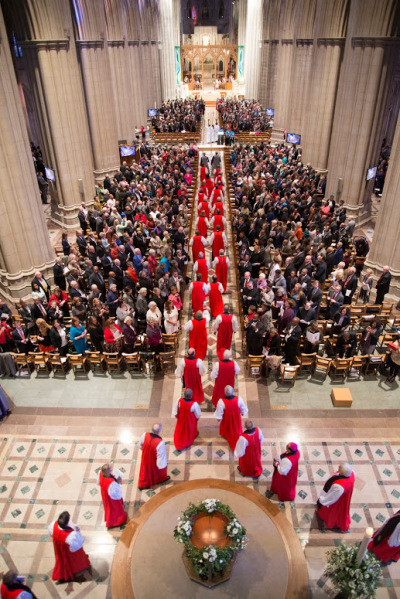Episcopal Church will be dead in 20 years, researcher says; denomination continues 'dire' decline

The Episcopal Church might soon cease to exist, according to those who describe the denomination's future as bleak based on plummeting membership numbers.
Attendance and membership numbers at churches within the mainline Protestant denomination have dropped significantly over the last decade, having lost one-quarter of worship attendees.
In 1966, when the church was said to be at its peak in the United States, approximately 3.6 million Americans identified as Episcopalian. The Episcopal Church’s Office of the General Convention reported that in 2018, membership in the denomination had dropped to 1.676 million.
Regular worship attendance in Episcopal churches in 2009 was approximately 724,000. By 2019, the figure was 579,000 on an average Sunday, a nearly 25% drop over a decade.
“The overall picture is dire,” the Rev. Dwight Zscheile, an Episcopal priest and professor, according to ChurchLeaders. “Not one of decline as much as demise within the next generation unless trends change significantly."
He said that at this rate, “there will be no one in worship by around 2050 in the entire denomination.” Although offering pledges have risen, “the fact that fewer people are giving more money is not a sustainable trend over the long term,” he added.
Approximately 55% of U.S. Episcopalians are age 60 and older, the highest average age of the largest 20 religious traditions in the nation, according to a demographic analysis by researcher Ryan Burge.
In a recent episode of "The Holy Post" podcast, Burge said the Episcopal Church will be dead in two decades. In a subsequent blog post, he noted that while it might not be gone completely, it will be "vastly diminished" and likely on "life support."
“A terrifying reality emerges” when looking at the mode as opposed to the average age, he added.
“The modal age of an Episcopalian in 2019 was 69.”
Burge estimates that by 2040, the denomination's membership could fall to 0.7% of the U.S. population, half of its current size. Only 14% of all Episcopalians report being parents of children younger than 18, the lowest of all religious traditions.
The Episcopal Church has been hollowed out largely by secularization in regions where liberal religious traditions have long been visible, such as the Northeast, West Coast, and the Rust Belt.
Another reason that the decline has been so steep has been the denomination's progressive theological direction, particularly pertaining to marriage and sexual ethics. The 2003 consecration of an openly gay bishop, Gene Robinson, was a touchpoint in the denomination's history in that many theologically conservative congregations left in protest and formed Anglican churches under a new ecclesiastical structure, with dioceses based on theological orientation.
The Anglican Church in Canada appears to be on a similar trajectory as the Episcopal Church in the U.S. In a November 2019 presentation before the Anglican Church of Canada Council of General Synod, the Rev. Canon Neil Elliot said the denomination would effectively cease to exist by 2040.





























